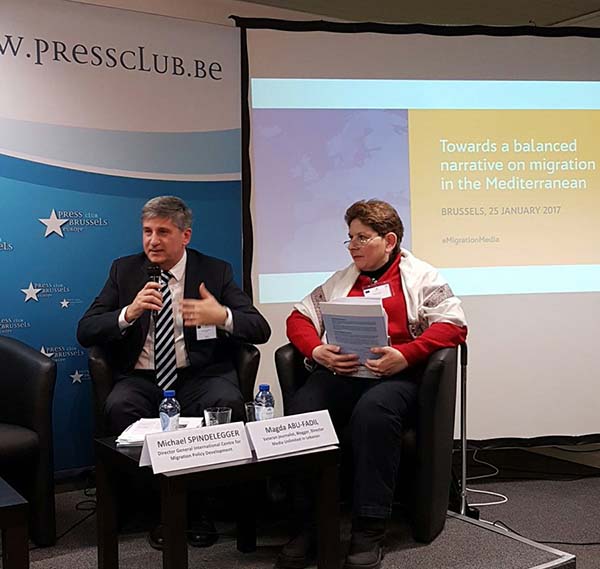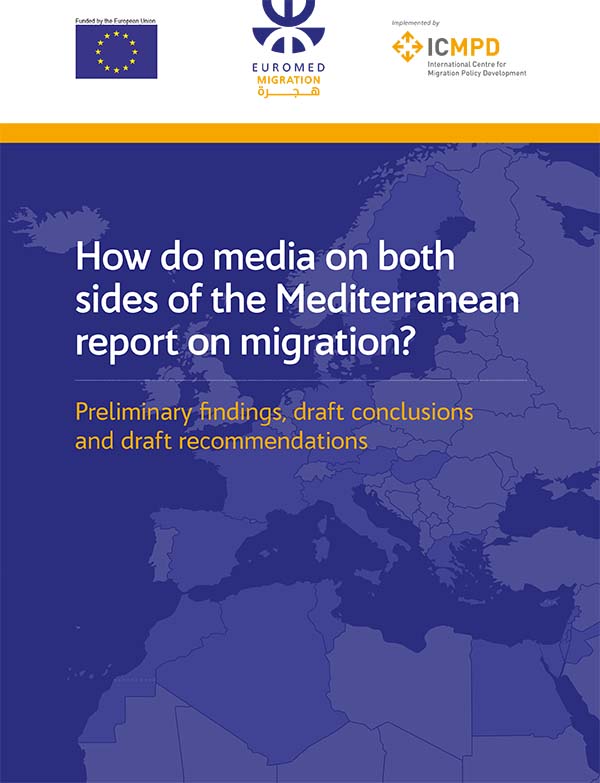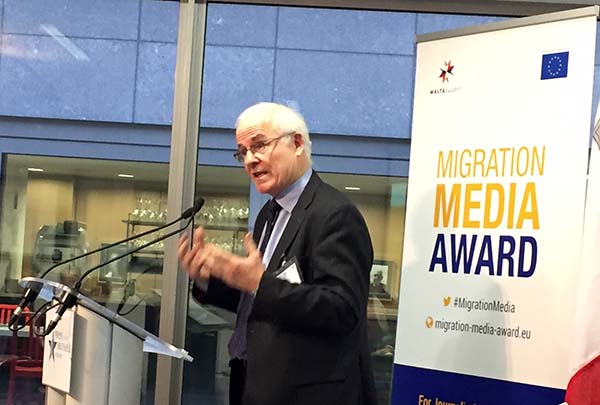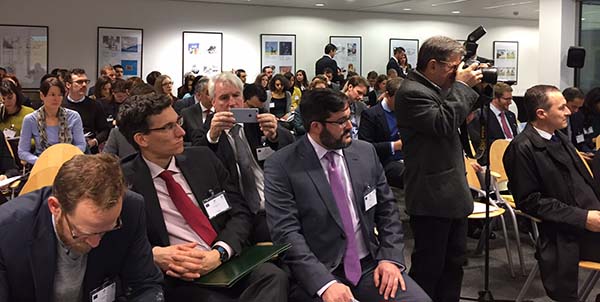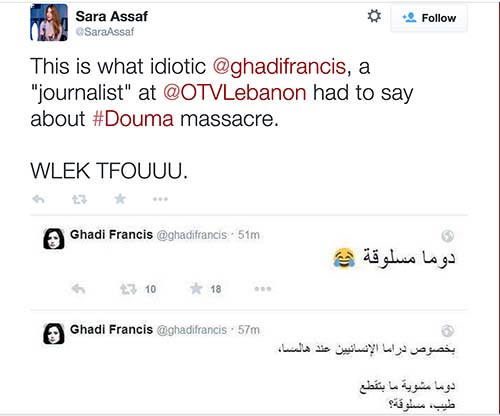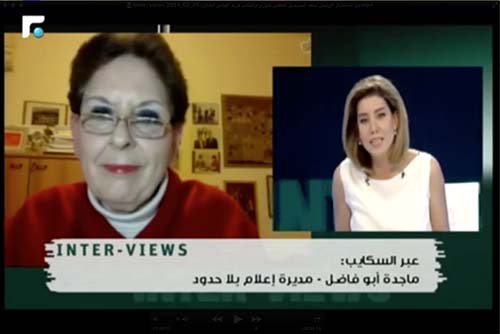Arab media’s coverage of the migrant/refugee crisis has seesawed from humane to atrocious, with Lebanon providing case studies of how ethical reporting hasn’t always been a priority.
Media Unlimited director Magda Abu-Fadil spoke at the Brussels Press Club on the need for better training of journalists who cover this expanding beat, and for other stakeholders to learn how to communicate effectively about the issue.
“Policymakers have to understand the news cycle,” and newsworthiness, and not flood already over-stretched journalists with jargon-filled releases and irrelevant material, she said at the event dubbed Towards a Balanced Narrative on Migration in the Mediterranean.
Asked how to handle viral hate speech in the media, Abu-Fadil replied: “Let’s not give too much airtime to lunatics.’
The one-day symposium in January 2017 organized by Euromed Migration IV, a program funded by the European Union and led by the EU Commission’s Directorate General for Neighborhood and Enlargement Negotiations, grouped some 100 policymakers and experts.
Maltese Foreign Minister George Vella, whose country holds the rotating EU presidency and has provided shelter for countless migrants from Africa, was on hand to launch the “Migration Media Award.”
The event also saw the release of preliminary findings of the Ethical Journalism Network’s (EJN) 17-country study on migration in Europe, the Middle East and Africa. Abu-Fadil wrote the report’s Lebanon chapter.
EJN director Aidan White presented initial findings and recommendations of the report commissioned by the International Center for Migration Policy Development.
The study reveals how journalism in the countries surveyed is a distorting lens: a magnifying glass…exposing inhumanity and corruption in the way migrants are treated, and following an agenda triggering discrimination and hate to compound the suffering of migration victims.

